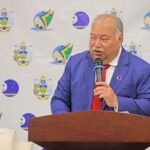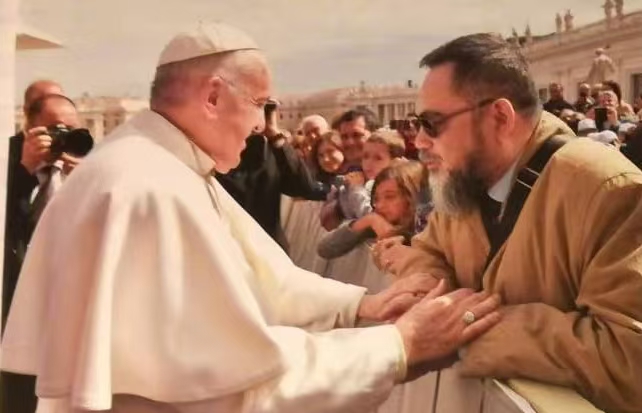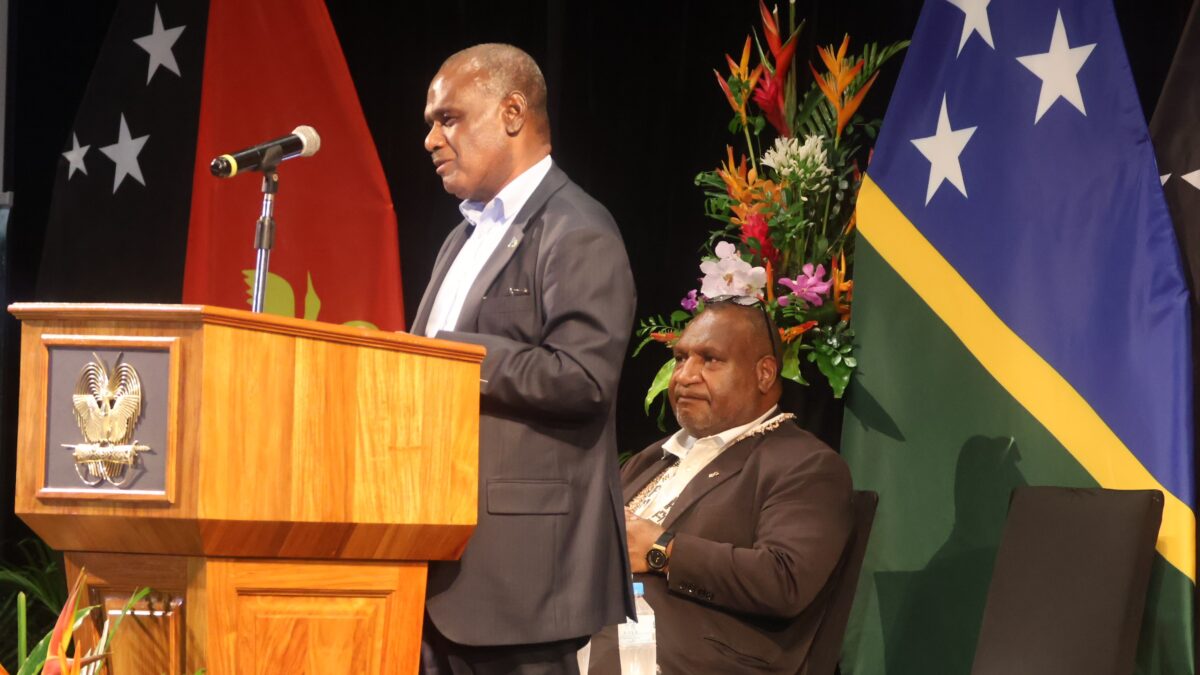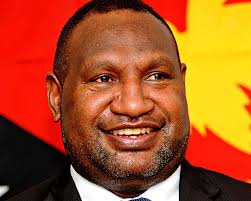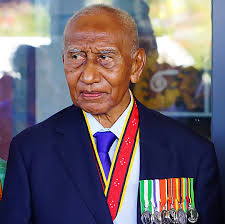Pope Francis with our Associate Editor, Ed Castro in Vatican City
by Edgardo Castro
Pope Francis urged Catholics in Papua New Guinea on Saturday to persist in their mission of sharing the Gospel with the country’s most marginalized and remote communities.
During his visit to the Shrine of Mary Help of Christians in Port Moresby on September 7, he spoke to bishops, priests, deacons, seminarians, and catechists from Papua New Guinea and the Solomon Islands.
The pope received a warm welcome from tribes in Hela Province, Central Province, and various remote areas, with the crowd chanting, “God is good all the time. All the time God is good.” Gertrude Apisai, a Catholic from New Ireland now living in Port Moresby, expressed her excitement about the pope’s visit, calling it a once-in-a-lifetime experience. She noted the Catholic Church in the country is “very spiritual and always friendly.”
Cardinal John Ribat, the archbishop of Port Moresby and the nation’s first cardinal, welcomed Francis to the shrine managed by Salesian missionaries. Bishop Otto Separy, president of Papua New Guinea’s bishops’ conference, described the country as a beautiful place with 800 languages and numerous tribes.
In his address, Pope Francis acknowledged the challenges faced by missionaries who arrived in Papua New Guinea in the 19th century, recognizing their determination despite initial setbacks. He emphasized their commitment to preaching the Gospel and serving others, often starting anew after failures.
The pope highlighted the inspiring stories of faith represented in the shrine’s stained-glass windows, including figures like St. Peter Chanel and Blessed Peter To Rot. He encouraged those present to emulate these saints by bringing Christ to “the peripheries of this country,” focusing on the most deprived urban populations and those in isolated areas lacking basic needs.
Grace Wrakia, a single mother of three, participated in the Vatican Synod assembly in October 2023 and plans to return for the next session. She told the pope that while synodality is a way of life in Papua New Guinea, there is a risk of losing their cultural identity as they integrate other ideas. She emphasized the importance of conversation methods to amplify the wisdom of everyday people.
Father Emmanuel Moku, who discovered his vocation later in life and was ordained at 52, shared his experience of facing ridicule for choosing priesthood over cultural expectations. Despite being seen as unproductive because of his decision, he expressed his belief that his priestly service contributes to building God’s kingdom on earth.
Sister Lorena Jenal discussed the difficult pastoral work involved with individuals accused of witchcraft. Pope Francis thanked the speakers for their testimonies, humorously referring to technical difficulties during his address. He emphasized the importance of patience, closeness, and tenderness in spreading the Gospel, concluding with a reminder to always remember “God’s style.”









